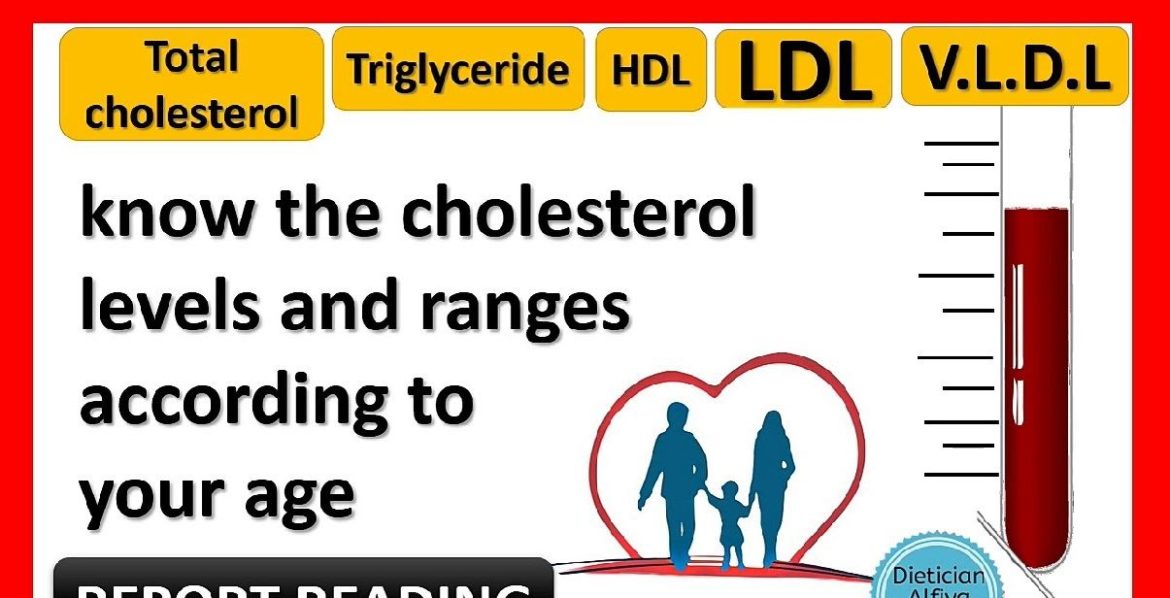Cholesterol, a waxy substance found in the blood, is essential for building cells and producing hormones. However, maintaining the right balance of cholesterol is crucial, particularly as we age. At 70, understanding your cholesterol levels becomes even more critical due to the increased risk of cardiovascular diseases. This article will explore the ideal cholesterol levels for a 70-year-old, the implications of high and low cholesterol, and strategies for managing cholesterol effectively.
Cholesterol: Types And Functions
Cholesterol travels through the bloodstream in two primary forms: low-density lipoprotein (LDL) and high-density lipoprotein (HDL).
SEE ALSO: 5 Types of Resistance Training That Can Lower Your Cholesterol
LDL (Low-Density Lipoprotein): Often referred to as “bad” cholesterol, LDL can build up in the walls of arteries, leading to atherosclerosis, which increases the risk of heart attack and stroke.
HDL (High-Density Lipoprotein): Known as “good” cholesterol, HDL helps remove LDL from the bloodstream, transporting it to the liver for processing and elimination.
Ideal Cholesterol Levels for A 70-Year-Old
Total Cholesterol
Total cholesterol includes the sum of LDL, HDL, and 20% of triglyceride levels. For a 70-year-old, the goal for total cholesterol should generally be:
Less than 200 mg/dL: This is considered desirable and associated with a lower risk of heart disease.
200-239 mg/dL: This range is considered borderline high.
240 mg/dL and above: This level is considered high and significantly increases the risk of cardiovascular problems.
LDL Cholesterol
LDL cholesterol is a critical factor in cardiovascular health. For individuals aged 70, the recommended LDL levels are:
Less than 100 mg/dL: Optimal level, particularly for those with heart disease or diabetes.
100-129 mg/dL: Near optimal, especially for those without additional risk factors.
130-159 mg/dL: Borderline high.
160-189 mg/dL: High.
190 mg/dL and above: Very high and a cause for concern.
HDL Cholesterol
Higher levels of HDL cholesterol are beneficial. For a 70-year-old, the recommended HDL levels are:
60 mg/dL and above: Considered protective against heart disease.
40-59 mg/dL: Acceptable, but higher is better.
Less than 40 mg/dL: Increases the risk of heart disease.
Triglycerides
While not a type of cholesterol, triglycerides are another type of fat in the blood and are important to monitor. For a 70-year-old, the recommended levels are:
Less than 150 mg/dL: Normal.
150-199 mg/dL: Borderline high.
200-499 mg/dL: High.
500 mg/dL and above: Very high and requires medical attention.
Why Cholesterol Levels Matter at Age 70
Cardiovascular Risk
At age 70, the risk of cardiovascular disease increases. High cholesterol levels can lead to plaque buildup in the arteries, known as atherosclerosis, which can cause heart attacks and strokes. Maintaining optimal cholesterol levels helps mitigate these risks.
Cognitive Function
Emerging research suggests that cholesterol levels may also impact cognitive function. Both high and low cholesterol levels have been linked to cognitive decline and dementia, making it crucial to maintain balanced cholesterol levels.
Overall Longevity
Optimal cholesterol levels contribute to overall longevity and quality of life. By managing cholesterol, individuals can reduce their risk of chronic diseases and maintain better health into their later years.
Factors Influencing Cholesterol Levels in The Elderly
Diet
A diet high in saturated fats, trans fats, and cholesterol can raise LDL levels. Conversely, a diet rich in fruits, vegetables, whole grains, and healthy fats can help lower LDL and raise HDL levels.
Physical Activity
Regular physical activity can help lower LDL cholesterol and raise HDL cholesterol. It also helps maintain a healthy weight, which is crucial for overall cardiovascular health.
Weight
Being overweight or obese can increase LDL cholesterol levels and decrease HDL cholesterol levels. Weight loss can improve cholesterol profiles and reduce cardiovascular risk.
Genetics
Genetic factors can influence cholesterol levels. Some individuals may have a genetic predisposition to high cholesterol, which requires more aggressive management.
Medications
Certain medications, such as statins, can help lower LDL cholesterol levels. Other medications, like bile acid sequestrants and cholesterol absorption inhibitors, can also be effective.
Underlying Health Conditions
Conditions such as diabetes, hypothyroidism, and chronic kidney disease can affect cholesterol levels. Managing these conditions is essential for maintaining healthy cholesterol levels.
Strategies for Managing Cholesterol at Age 70
Healthy Eating
Adopting a heart-healthy diet is one of the most effective ways to manage cholesterol. This includes:
Limiting Saturated and Trans Fats: Found in red meat, full-fat dairy products, and processed foods.
Increasing Fiber Intake: Soluble fiber, found in oats, beans, and fruits, can help reduce LDL cholesterol.
Eating Healthy Fats: Monounsaturated and polyunsaturated fats, found in olive oil, nuts, and fish, can improve cholesterol levels.
Avoiding High-Cholesterol Foods: Such as organ meats and shellfish.
Regular Exercise
Engaging in regular physical activity, such as walking, swimming, or cycling, can help improve cholesterol levels. Aim for at least 150 minutes of moderate-intensity exercise per week.
Weight Management
Maintaining a healthy weight through diet and exercise can help manage cholesterol levels. Even a modest weight loss can have a significant impact on cholesterol and overall health.
Medication Adherence
For those prescribed cholesterol-lowering medications, adhering to the prescribed regimen is crucial. Regular check-ups with a healthcare provider can help monitor cholesterol levels and adjust medications as needed.
Regular Health Screenings
Regular cholesterol screenings are essential for monitoring levels and assessing cardiovascular risk. Based on the results, healthcare providers can recommend lifestyle changes or medications to manage cholesterol effectively.
Conclusion
At age 70, maintaining optimal cholesterol levels is vital for reducing the risk of cardiovascular disease, preserving cognitive function, and promoting overall longevity. Understanding the ideal cholesterol levels and implementing strategies to manage them can lead to a healthier and more fulfilling life.

